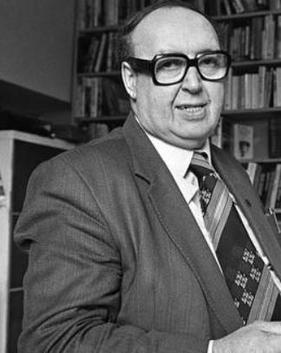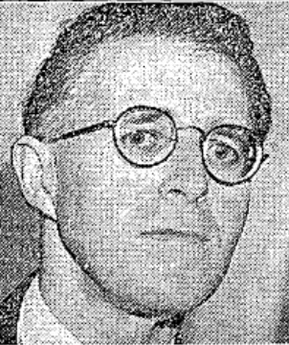Related Research Articles

The Independent Labour Party (ILP) was a British political party of the left, established in 1893 at a conference in Bradford, after local and national dissatisfaction with the Liberals' apparent reluctance to endorse working-class candidates, representing the interests of the majority. A sitting independent MP and prominent union organiser, Keir Hardie, became its first chairman.

The Northern Ireland Labour Party (NILP) was a political party in Northern Ireland which operated from 1924 until 1987.
The Ulster Unionist Labour Association (UULA) was an association of trade unionists founded by Edward Carson in June 1918, aligned with the Ulster Unionists in Ireland. Members were known as Labour Unionists. In Britain, 1918 and 1919 were marked by intense class conflict. This phenomenon spread to Ireland, the whole of which was part of the United Kingdom at the time. This period also saw a large increase in trade union membership and a series of strikes. These union activities raised fears in a section of the Ulster Unionist leadership, principally Edward Carson and R. Dawson Bates. Carson at this time was president of the British Empire Union, and had been predisposed to amplify the danger of a Bolshevik outbreak in Britain.

The Communist Party of Ireland is an all-Ireland Marxist–Leninist communist party, founded in 1933 and re-founded in 1970. It rarely contests elections and has never had electoral success. The party is a member of the International Meeting of Communist and Workers' Parties.
Harry Diamond (1908–1996) was a socialist and an Irish nationalist. He was the MP for Belfast Falls in the Parliament of Northern Ireland, and later the leader of the Republican Labour Party.

Patrick Joseph "Paddy" Devlin was an Irish socialist, labour and civil rights activist and writer. He was a founding member of the Social Democratic and Labour Party (SDLP), a former Stormont MP, and a member of the 1974 Power Sharing Executive.

William O'Brien was a politician and trade unionist in Ireland. While rarely dominating the political spotlight, O'Brien was incredibly powerful and influential behind the scenes, maintaining a firm grip over Ireland's trade unions for many decades. Besides his leadership in the trade unions, O'Brien was a founder, alongside James Larkin and James Connolly, of the Labour Party of Ireland. In later years a rift formed between Larkin and O'Brien that would last the rest of their lives and often divide the labour movement in Ireland.
The United Labour Party was a minor political party in Northern Ireland.
The Commonwealth Labour Party (CWLP) was a minor political party in Northern Ireland. The party was founded in 1942 by Harry Midgley, former leader of the Northern Ireland Labour Party (NILP), in order to pursue his brand of labour unionism.
Henry Cassidy Midgley, PC (NI), known as Harry Midgley was a prominent trade-unionist and politician in Northern Ireland. Born to a working-class Protestant family in Tiger's Bay, north Belfast, he followed his father into the shipyard. After serving on the Western Front in the Great War, he became an official in a textile workers union and a leading light in the Belfast Labour Party (BLP). He represented the party's efforts in the early 1920s to provide a left opposition to the Unionist government of the new Northern Ireland while remaining non-committal on the divisive question of Irish partition.

Owen Lancelot Sheehy-Skeffington was an Irish university lecturer and senator. The son of pacifists, feminists and socialists Francis and Hanna Sheehy-Skeffington, he was politically likeminded and as a member of the Irish Senate was praised as a defender of civil liberty, Democracy, separation of church and state, freedom of speech, women's rights, minority rights and many other liberal values.
Francis "Frank" Hanna, was an Irish politician.
Victor Halley (1904–1966) was a trade unionist and socialist in Northern Ireland, who identified the cause of labour with the achievement of an all-Ireland republic.
Murtagh Morgan was a trade unionist and Irish republican politician.
Robert Dorman was an Irish socialist activist.
Jack Macgougan was a trade unionist and socialist activist in Ireland.
David Robb Campbell, often known as Davy Campbell, was a trade unionist based in Belfast.
Belfast Trades Council, also known as Belfast & District Trades Union Council, brings together trade unionists in and around Belfast in Northern Ireland.
Joseph Erskine Holmes is a politician in Northern Ireland.
The Socialist Party of Ireland (SPI) was a small political party in Ireland associated with James Connolly.
References
- ↑ Peter Collins, "The Labour Movement in Belfast", ed. Jürgen Elvert, Nordirland in Geschichte und Gegenwart, pp. 83-84
- ↑ Peter Barberis et al, Encyclopedia of British and Irish Political Organizations, p. 238
- 1 2 Peter Collins, "The Labour Movement in Belfast", ed. Jürgen Elvert, Nordirland in Geschichte und Gegenwart, pp. 89-91
- ↑ D. George Boyce and Alan O'Day, Ireland in Transition, 1867-1921, p. 210
- ↑ Peter Catterall, The Northern Ireland Question in British Politics, p. 72
- ↑ Ronaldo Munck and Bill Rolston, Belfast in the thirties: an oral history, pp. 145, 148
- 1 2 Ronaldo Munck and Bill Rolston, Belfast in the thirties: an oral history, p. 147
- ↑ Andrée Sheehy Skeffington, Skeff: The Life of Owen Sheehy Skeffington, 1909-1970, p. 251
- 1 2 3 "Letting Labour Lead: Jack Macgougan and the Pursuit of Unity, 1913-1958", Saothar, No. 14
- ↑ J. Bowyer Bell, The Gun in Politics: An Analysis of Irish Political Conflict, 1916-1986, p. 97